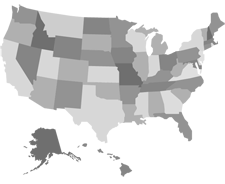Learn to Become a Better Saver
One of the basic tenets of saving money is to spend less. That's fairly obvious. And one of the most important ways to accomplish this is to create a budget so that you actually know where your money is going every month. You can do this quite simply by writing down your personal financial information (income, expenses) in a notebook or by using one of the many online tools available which help consumers track their spending. Once you have done this, you should be able to see where you might be overspending (dining out, entertainment, impulse purchases). Next, you can decide where to make cuts.Most financial experts suggest saving 20% of your overall income. If you have never been a regular saver, this may seem like an unrealistic number and a financial undertaking you can't possibly hope to achieve. But when you consider the consequences of not saving adequately for emergency situations, future financial goals, and a comfortable retirement, you will probably conclude that saving is too important a choice to ignore.
Here are some suggestions which should help you get started.
A Simple Guide to Becoming a Better Saver
- Start now. It's really easy to put things off. "I'll start next month". "I don't make enough money". "I can't possibly do this". There's a saying that goes "Life is What Happens to You While You're Busy Making Other Plans". Don't wait. Lose the excuses and just start.
- Be realistic. It sounds nice to say you'll start saving $500 a month but that's probably not going to happen at first. Your budget may show that you have $100 at the moment to put aside in some type of savings account so go with that. Once you become more comfortable with your budget and find more places to cut your spending, you can increase the amount you put into savings accordingly.
- Keep it simple. Keep your budget simple. Zero in on specific goals. Not over-thinking what you're doing and focusing on what you're going to achieve should help you stay on track.
- Pay yourself first. Make yourself a financial priority. Most companies offer an automatic payroll deposit. Use this to direct whatever amount you have decided on into a savings account each time you are paid. In this way, you don't even have to think about it- it's automatically done for you. Plus you never see the money so there's no temptation to spend it on something else.
- Write down specific goals. Actually seeing what you're saving for written down on paper can be great motivation! If your goal is to save $1500 for a vacation, write it down. Remind yourself how wonderful it will be to have the money for your trip already in hand. Who wants to be paying for a trip already taken over the next two or three years ? Not relying on credit is a great way to become a better saver and a savvy money manager!
- Keep the change. Throw your spare change into a small box or jar every night. You'd be surprised how quickly it can add up!
- Extra cash. Throughout the year you may receive extra cash such as tax refunds or bonuses from work. You may even receive a raise. Put any additional funds directly into savings. Extra income (or any extra cash) is not a reason to increase your spending!
- Employ the 72-hour rule. If you know you have a habit of making rash, impulsive purchases give yourself three days to think about it before actually buying the item. Most likely, you'll discover that the initial thrill of wanting to buy something has cooled off considerably during this waiting period! In some cases it may be prudent to avoid the mall, or department store, or online website altogether if impulse shopping is a serious issue.
- Make cuts wherever possible. You may not even think about that cappuccino you buy every morning on the way to work. Try making your coffee at home and taking it with you. That's a possible savings of $5 per day or $25 a week. Imagine that $1200 in your savings account instead. You've almost got your vacation money just from brewing your own coffee. Brown bag your lunch a couple of times a week. Stash the savings. It's all about making smart choices.
State Guides
- Alabama
- Alaska
- Arizona
- Arkansas
- California
- Colorado
- Connecticut
- Delaware
- District of Columbia
- Florida
- Georgia
- Hawaii
- Idaho
- Illinois
- Indiana
- Iowa
- Kansas
- Kentucky
- Louisiana
- Maine
- Maryland
- Massachusetts
- Michigan
- Minnesota
- Mississippi
- Missouri
- Montana
- Nebraska
- Nevada
- New Hampshire
- New Jersey
- New Mexico
- New York
- North Carolina
- North Dakota
- Ohio
- Oklahoma
- Oregon
- Pennsylvania
- Rhode Island
- South Carolina
- South Dakota
- Tennessee
- Texas
- Utah
- Vermont
- Virginia
- Washington
- West Virginia
- Wisconsin
- Wyoming



